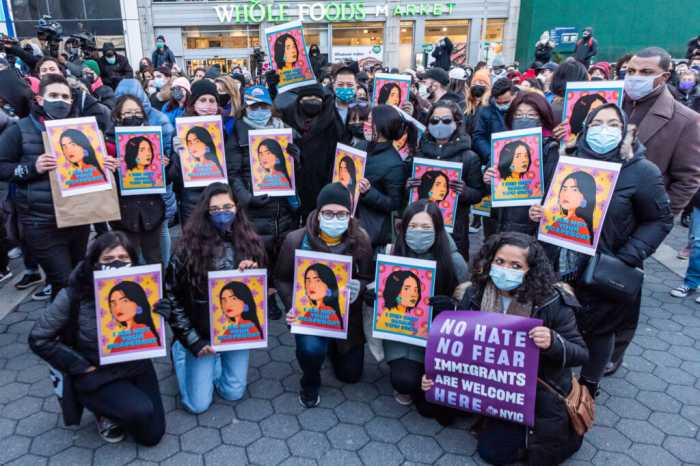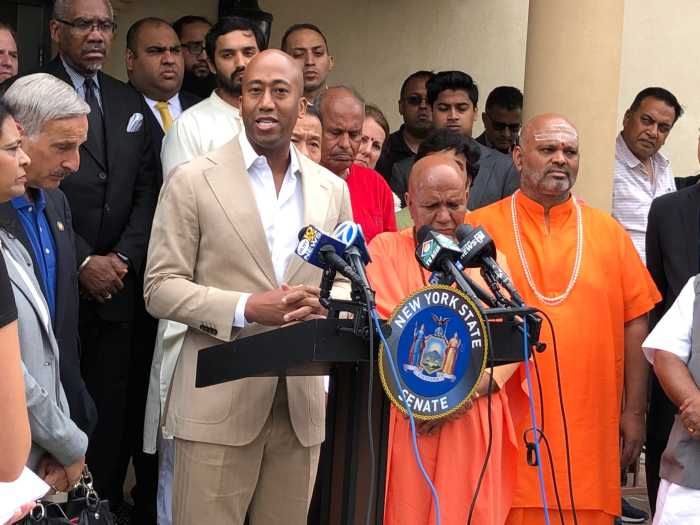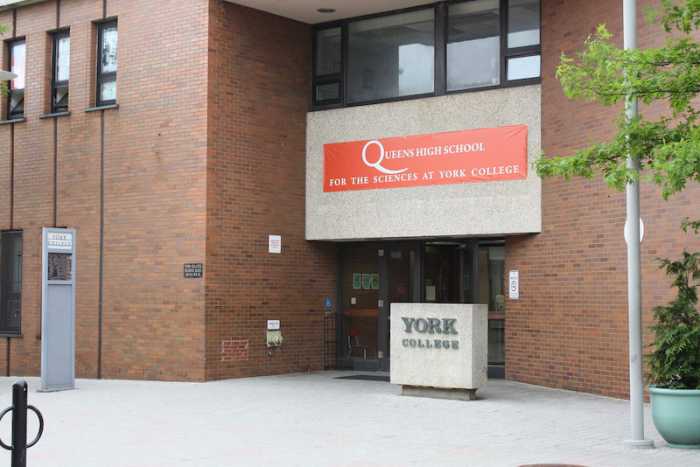Several Asian American-led groups and legislators are supporting a bill that’s nearly at Governor Kathy Hochul’s desk, but one organization of conservative Chinese advocates wants it vetoed.
The Asian American and Pacific Islander (AAPI) Disaggregation bill, sponsored by Brooklyn state Senator Juila Salazar (D-Brooklyn), aims to diversify data collection of Asian Americans into more categories, as the demographic group represents over 30 countries.
But members of the Chinese American Citizens Alliance of Greater New York (CACAGNY) are asking Hochul to veto it, because of its alleged premise of lowering the political power of Asians in New York.
In a statement to the press, the organization said, “Why target Asians, right after the New York Post headlines an article heralding the new political power of Asians in NYC’s Nov. 2 voting? Why target Asians, just as NYC redistricting fights are heating up?”
Salazar’s legislative director, Mark Mishler answers these questions for PoliticsNY: “Senator Salazar … and many of her colleagues in the Senate and the Assembly strongly believe in the empowerment of the entire Asian American Pacific Islander community, and in providing services to the community that reflect the actual needs of different segments and sectors of that community.”
The law, which has passed in the Senate and Assembly, would require every state agency, board, department and commission to collect data with these new categories as quoted in the text of the bill:
“Each major Asian group, including, but not limited to, Chinese, Japanese, Filipino, Korean, Vietnamese, Asian Indian, Laotian, Cambodian, Bangladeshi, Hmong, Indonesian, Malaysian, Pakistani, Sri Lankan, Taiwanese, Nepalese, Burmese, Tibetan, and Thai; And
(B) Each major Pacific Islander group, including, but not limited to, Hawaiian, Guamanian, Samoan, Fijian and Tongan; or
(C) Other Asian or Pacific Island group.”
Many of Salazar’s colleagues that support disaggregation of Asian American demographic data are Asian, such as Lower Manhattan Assemblymember Yuh-Line Niou, and Queens state Senator John Liu – both of whom are Taiwanese American.
Both are also Democrats, which CACAGNY points out in their release. “One thing is certain: this is not a bipartisan bill. Each and every one of the sponsors and co-sponsors of the bill are from the same party,” the organization said.
They are concerned about too many designations for children from two or more cultures, and potentially pitting of some Asians cultures against others.
Mishler, who worked on the legislation, said the bill is actually aimed at understanding everyone’s differences so that the state can better provide for individual needs. In other words, not all Asian Americans want the same thing.
In a letter to the governor endorsed by over 30 Asian-led organizations, the Coalition for Asian American Children and Families said, “Enacting S6639A/A6896A into State law is of particular importance to the [Asian American and Native Hawaiian/Pacific Islander] community because data disaggregation has the unique ability to unify our diverse community.”
The Coalition, which leans liberal compared to CACAGNY, and many others disagree with the narrative that disaggregation bills foster division.
“Data disaggregation allows us to identify where particular struggles lie, so our community can step up to support those who struggle the most,” the Coalition said.
The coalition also believes that this bill can pave the way for improved data collection systems in other communities of color and in the LGBTQ+ community.
“Equipped with disaggregated data, the State can then leverage this information to more accurately innovate policy solutions and deploy much-needed resources toward the State’s most pressing priorities: COVID-19 vaccination, relief, and recovery efforts,” they wrote.
Asian American communities are not the only groups that struggle with perception. The Caribbean diaspora, Latin countries and people of African descent can be treated as monoliths in their own right, despite representing countries and cultures around the world.
Whether that benefits or harms them is up for debate within the community.
Even the term “AAPI,” which refers to the Asian American and Pacific Islander community, became popular after several instances of anti-Asian hate crimes this year, but is subject to scrutiny within the community. How non-white New Yorkers identify changes generationally — see the debate over the term Latinx, which is fairly new and used often by the media, but lacking support among the group it is used to identify.
The CACAGNY’s contribution to racial discussions often leans conservative. They’ve joined an energetic conservative campaign against the alleged Critical Race Theory (talk of which has fomented anger among conservatives over educating students about the historical result of racial discrimination in America’s institutions), and they work to end propositions they believe pit racial minorities against each other. Salazar’s office says they have this one wrong.










